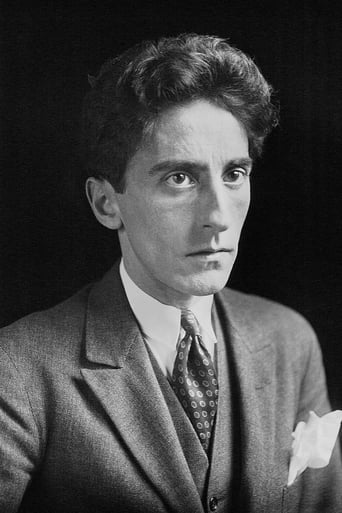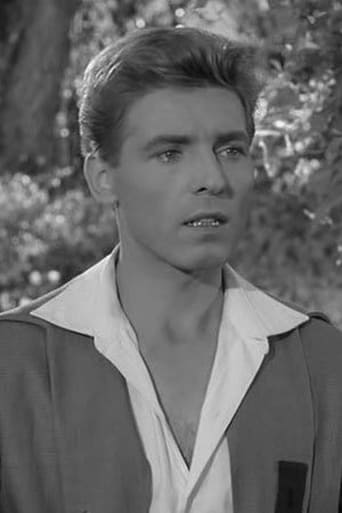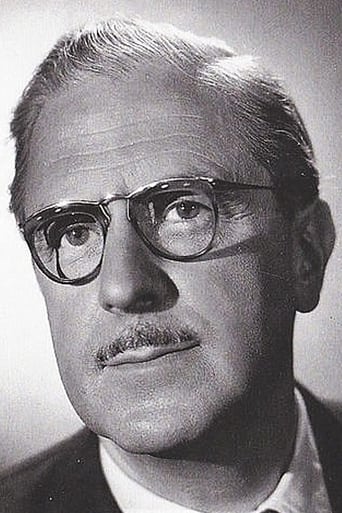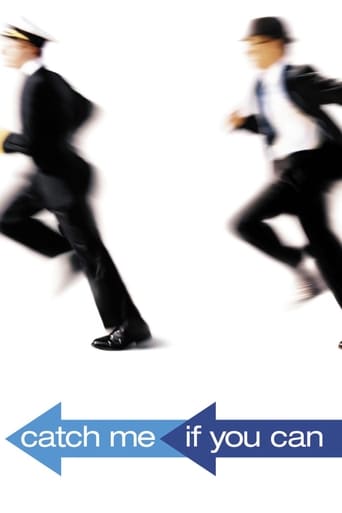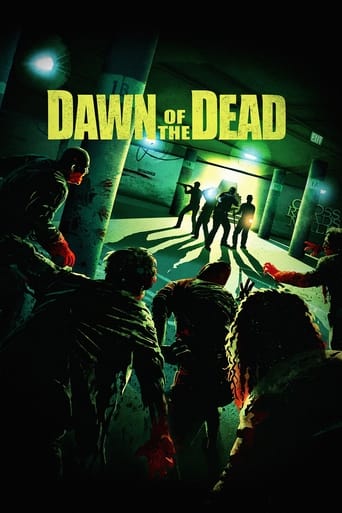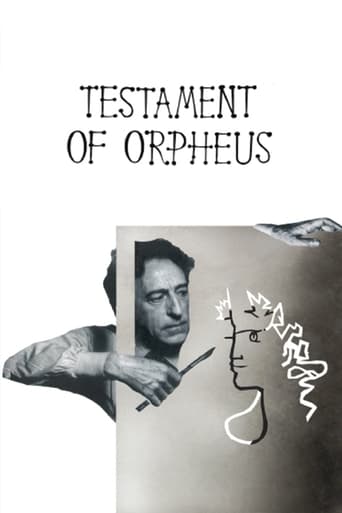
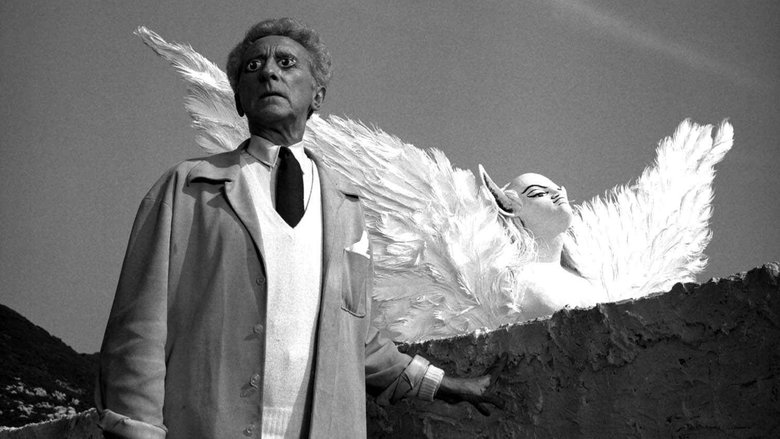
Testament of Orpheus (1962)
Outside time and reality, the experiences of a poet. The judgement of the young poet by Heurtebise and the Princess, the Gypsies, the palace of Pallas Athena, the spear of the Goddess which pierces the poet's heart, the temptation of the Sphinx, the flight of Oedipus and the final Assumption. This film is the third part of Cocteau's Orphic Trilogy, which consists of The Blood of a Poet (1930), Orpheus (1950) and Testament of Orpheus (1960).
Watch Trailer
Cast
Similar titles


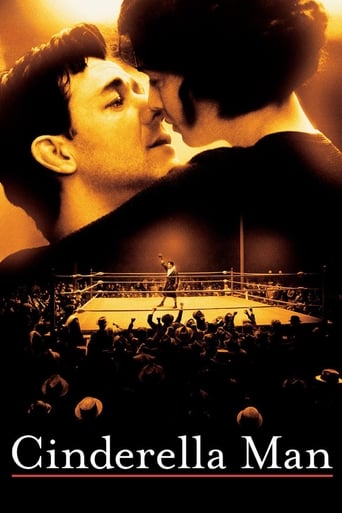
Reviews
It is a performances centric movie
good back-story, and good acting
There are moments in this movie where the great movie it could've been peek out... They're fleeting, here, but they're worth savoring, and they happen often enough to make it worth your while.
This is a dark and sometimes deeply uncomfortable drama
This motion picture is remarkable, in it's grandest statement. I won't say much, although if you look into a particular character in the opening sequence, "Professor Langevin" he is a real person in history. A French Physicist, http://en.wikipedia.org/wiki/Paul_LangevinMonsieur Langevin is what I name, the French "Einstein". But, in my opinion far more complex and advanced lifeform. If you, do a google search for "Langevin & Einstein" in google images, you can find a famous photo where the two minds collided.So, what is the mystery behind this character? Or rather the secret? It is very groundbreaking, Jean Cocteau's genuine testament on distorting reality, not here in the present day, but rather since in the movie he is a time traveler, the Future, where the Professor awakens from his dream. He calls it a magic bullet. And that is what it is...This is one of cinema's finest magical pieces, in that there's a mysterious distortion in reality, in the Future. Look into it, you may think that, all this are just assumptions, but, remember Langevin is a real human like you and me.So, what we believe as surreal, may not be actually surreal at all, rather the opposite, a genuine reality that happened to be in a theatrical production, a fantasy. Being that, is why we call it surreal. I would say, Cocteau's surrealism is heightened best in this masterpiece.Enjoy.
This kind of movie is very difficult to rate. It can't compete with any IMDb's top 250 movies. No Godfather, no Dark Vador, no Indiana Jones. Not a feelgood movie, not a buddy movie... not any f... blockbuster movie. Well. Let's face it : not anybody's movie. It's just a f... masterpiece about Poetry. That's why it's not ranked, but still pretty well rated for such an old movie. Films like this don't exist anymore. Maybe poets like this don't exist anymore. Maybe Cocteau's Beauty and the Beast is easier, and a better choice to start with Cocteau's Film works, but I think this one is mesmerizing. Also, Cocteau's "Le Sang d'un Poete" from 1930 is maybe a great movie for surrealist films fans. But Le Testament dOrphee is Cocteau's last effort and for me it sums up and benefits all. A testament and a masterpiece.
When this movie starts out, you will find yourself - if you are old enough - feeling that you have somehow been transported back in time to the 1950s and some very serious coffee house (NOT Starbucks) where, on Friday nights, they showed "experimental" films (not movies, of course, but films). The surrealist tricks that had been innovative 30 years before in "The Blood of the Poet" are still there, with the people and objects that suddenly disappear or appear and the surreal movement. There is still the clearly enunciated and theatrical speech. By the 1960s, this could be seen as kitsch.But there is still, fairly often, a certain imaginative touch that comes off as real poetry. Not as much as in "Beauty and the Beast", certainly, to which this is much inferior. But enough to justify giving it a try.And then there is the cameo appearance by Yul Brenner, who actually speaks very good French. Brenner was a big star at the time; how Cocteau convinced him to appear in this I will never know.
French national treasure Jean Cocteau's last film is as personal and private as it's title suggest. Le Testament d'Orphee is a fond farewell to cinema with it's free-flowing, spirited collection of images and scenes that includes characters from Cocteau's past films and personal friends. One would hardly imagine a cinematic poet like Jean Cocteau would be so crass as to make something like a mere sequel to his acclaimed Orpheus/Orphee (1950). And instead what Cocteau does is to give us perhaps cinema's first meta-film. The film itself is an autobiographical fantasia of his whole life. Playing various versions of himself, Cocteau glides through the film as a time traveler in search of his place in the universe. He called it an active poem.The film was shot on location at Les Baux in the South of France, a landscape whose rough limestone canyons appealed to Cocteau even more than Greece. Francine Weinweller and the main crew put up at that gourmet's mecca, the Hostellerie de la Baumaniere. Francine had a costume part in the film as La Dame qui s'est trompe d'epoque. All the icons out of Cocteau's past were woven into the visual testament - mirrors, horses, flowers, tapestries, and many of his friends - Dermit, Marais, Yul Brynner, Picasso and his wife, among others, appeared.Unfortunately for Cocteau, public and critics, weaned on the literature of commitment popularized by Sartre and Camus, turned their backs on Le Testament d'Orphee, finding it a self-serving celluloid relic, oddly out of step with the times. One voice, however, and an important one, praised the film. Young Francois Truffaut, winner of a large prize for his film Les Quatre Cents Coups, had turned the money over to Cocteau to help finance Le Testament. Truffaut liked the finished product, which he considered a remake, thirty years later, of Le Sang d'un Poete. Truffaut was not alone in seeing Cocteau, judged by his previous films, as one of the main precursors of New Wave filmmakers.Le Testament d'Orphee is a misunderstood masterpiece. Brilliant!!!!
